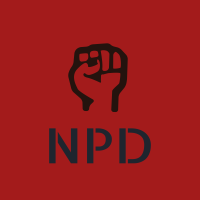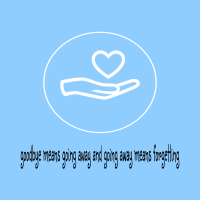Narcissistic Personality Disorder (NPD)
Truth is like
surgery. It hurts but it cures. A lie is like a pain killer. It gives instant
relief but has side effects forever.
The word narcissism gets tossed
around a lot in our selfie-obsessed, celebrity-driven culture, often to
describe someone who seems excessively vain or full of themselves. But in
psychological terms, narcissism doesn’t mean self-love—at least not of a genuine
sort. It’s more accurate to say that people with narcissistic personality
disorder (NPD) are in love with an idealized, grandiose image of themselves.
And they’re in love with this inflated self-image precisely because it allows
them to avoid deep feelings of insecurity. But propping up their delusions of
grandeur takes a lot of work—and that’s where the dysfunctional attitudes and
behaviors come in.
Narcissistic personality disorder
involves a pattern of self-centered, arrogant thinking and behavior, a lack of
empathy and consideration for other people, and an excessive need for
admiration. Others often describe people with NPD as cocky, manipulative,
selfish, patronizing, and demanding. This way of thinking and behaving surfaces
in every area of the narcissist’s life: from work and friendships to family and
love relationships.
People with narcissistic
personality disorder are extremely resistant to changing their behavior, even
when it’s causing them problems. Their tendency is to turn the blame on to others.
What’s more, they are extremely sensitive and react badly to even the slightest
criticisms, disagreements, or perceived slights, which they view as personal
attacks. For the people in the narcissist’s life, it’s often easier just to go
along with their demands to avoid the coldness and rages. However, by
understanding more about narcissistic personality disorder, you can spot the
narcissists in your life, protect yourself from their power plays, and
establish healthier boundaries.
Why did I bring up this subject this time? This subject relates to an
experience I had and I wanted to share that experience because sometimes not
many people know that they are actually dealing with someone who is
narcissistic (NPD).
A person who has a narcissistic nature is not necessarily aware that the
person has that trait. Sometimes it takes a long time to realize that they have
that narcissistic nature, it may also be that it is not them who realize that
they are narcissistic but their partner who finally realizes that their partner
is a narcissist.
9 official criteria for NPD
- grandiose sense of self-importance
- preoccupation with fantasies of unlimited success,
power, brilliance, beauty, or ideal love
- belief they’re special and unique and can only be
understood by, or should associate with, other special or high-status
people or institutions
- need for excessive admiration
- sense of entitlement
- interpersonally exploitative behavior
- lack of empathy
- envy of others or a belief that others are envious
of them
- demonstration of arrogant and haughty behaviors or
attitudes
Many eventually realize that
their partner is narcissistic after they have lived with them for a long time.
Just like me, it took me 16 years to realize that my partner was a narcissist. At first I never knew that the attitude he had referred to a mental
disorder. I think the reason I never realized it at that time was because of my society, culture, environment
and customs that made me never aware of that red flag.
During those 16 years I always thought that all the treatment he did to me
was a normal thing that all couples would do to their partner. Why can't I be
aware of all that? Because from the first time I decided to be with him, it can
be said that I cut off contact with society, stayed away from society and my
life was only around him.
At one point I was no longer able to deal with all these treatments because
all these treatments were repeated with the same cycle.
Here are some signs that I've experienced:
1. They
were charming AF… at first
2. They hog the
conversation, talking about how great they are
3. They feed off your
compliments
4. They lack empathy
5. They don’t have any (or
many) long-term friends
6. They pick on you constantly
7. They gaslight you
8. They dance around
defining the relationship
9. They think they’re right
about everything… and never apologize
10. They
panic when you try to break up with them
11. And the last when
you show them you’re really done, they lash out
If I had never experienced any of these eleven signs. I wouldn't dare say
that my partner is an NPD. It took me a while to figure out that he was an NPD. All the signs repeated again and again, unchanged for years. And believe
me, the cycle remains the same, it will be like that.
Being in a relationship with
someone who’s always criticizing, belittling, gaslighting, and not committing
to you is emotionally exhausting. You
cannot change a person with narcissistic personality disorder or make them
happy by loving them enough or by changing yourself to meet their whims and
desires. They will never be in tune with you, never empathic to your
experiences, and you will always feel empty after an interaction with them.
Remember: This post isn’t
meant to diagnose or judge. It’s
meant to outline unacceptable behaviors and reactions in the context of a
loving, equitable partnership. None of these signs point to a healthy
relationship, NPD or not.
Here I just want to share my
experience, maybe there is someone out there who never realized that they were
facing the same problem. Based on my experience, I often come across some
people who are not aware that their partner is an NPD.
If asked if I have managed to get rid of this? Not yet and it will take
time to be able to end all of this in a good way even though I know it won't be
easy. When I found out that my partner was NPD, I
started researching and following the NPD survivor community. Doing all of that
made me realize that it would not be easy and would require a very long
process.
Meeting NPD survivors also made me realize that I
am not alone and they made me realize that strengthening each other, supporting
and encouraging each other is something that means a lot to us when we know
that we are going through the same experience.
Although I still can't get over this, what I can recommend if it turns out
that you're also facing an NPD is the best thing you can do is cut ties. Offer them no explanation.
Offer no second chance. Break up with them and offer no second, third, or
fourth chance. Because a
narcissist will most likely make attempts at contacting you and harassing you
with calls or texts once they’ve fully processed the rejection, blocking them
to help you stick with your decision.




Comments
Post a Comment